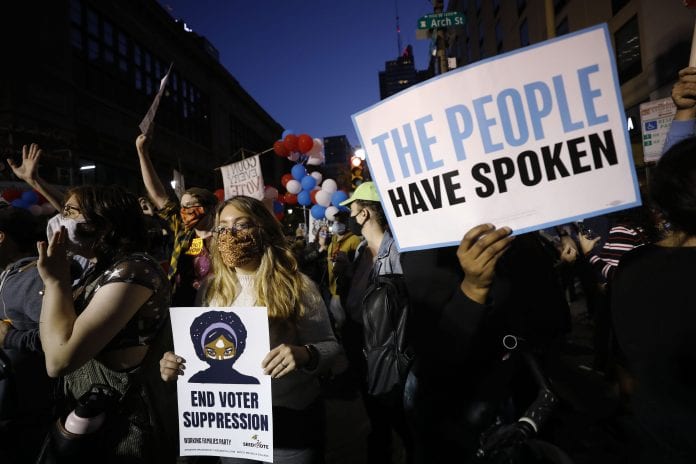The outcome of the recent U.S. presidential election on November 5 has left many Caribbean Americans feeling disappointed, especially those in South Florida who supported Kamala Harris—a candidate with Caribbean heritage and Democratic ideals that resonate within this community.
For some, her loss feels personal, as many had hoped Harris would bring a perspective to the White House that acknowledged and uplifted immigrant communities.
Since the election, there’s been a flood of feedback about the strategies employed by the Harris/Walz campaign and the broader Democratic Party. Many argue that President Joe Biden’s decision to withdraw from the race came too late, putting Harris in the difficult position of a shorter campaign window. Additionally, there’s been speculation that Harris’s choice of running mate, Tim Walz, may not have maximized her appeal among moderate and undecided voters as a more well-known figure, such as Pennsylvania’s Governor Josh Shapiro, might have done. These critiques reflect the ongoing public debate surrounding the Democratic Party’s tactics, choices, and timing in this election.
It’s worth acknowledging the challenges Harris faced as a candidate with only 144 days to introduce and build her vision for America. In contrast, her opponent has been building a base and maintaining a campaign mentality since 2016, with a four-year presidency that solidified his influence over his supporters. Some Caribbean Americans and others argue that Harris’s campaign suffered from racial and gender biases, creating hurdles that are difficult to quantify yet were keenly felt by those who supported her bid for the presidency.
For those who feel anxious about the future, it’s important to remember that this election was conducted under the protection of the U.S. Constitution, which guarantees citizens the right to freely elect their leaders. This process, while not without flaws, has stood the test of time. Over recent months, candidates communicated their visions, policies, and priorities clearly, giving voters the opportunity to weigh their choices. Ultimately, the American people have spoken, exercising their democratic right in a historic turnout.
The U.S. government is structured with checks and balances that prevent any single figure or party from exercising absolute control. The power of the presidency is limited by the roles of Congress and the Supreme Court, as well as state governments. History has repeatedly shown that even when one party holds sway across the executive and legislative branches, the separation of powers safeguards against excessive authority. Although some fear the potential erosion of these protections, there’s little evidence to suggest that the principles of the Constitution will be easily subverted.
Defeat can be a painful experience, particularly when one has invested their hopes and dreams in a specific candidate. But it can also provide valuable lessons and opportunities to reassess strategies. This election highlighted areas where the Democratic Party may need to make changes. In Florida, for example, Republican voter registrations have far outpaced those of Democrats, especially among new citizens and other voting blocs traditionally thought to lean Democratic. Some have suggested that the Democratic Party needs to place greater focus on grassroots registration and outreach, especially in states where demographics are shifting.
Additionally, some community members and political analysts have argued that elements of the Democratic Party’s platform may have alienated potential supporters. For example, some voters expressed discomfort with the party’s strong advocacy for LGBTQ+ rights, suggesting that a more nuanced approach to certain social issues might align better with the values of diverse communities. This feedback underscores the importance of understanding cultural nuances within the electorate and taking them into account when shaping policies.
While disappointment over Kamala Harris’s defeat is understandable, her loss does not diminish the rights or voices of Caribbean Americans. They are an integral part of the nation, and it is their continued engagement that will shape the future, no matter which party holds office. Rather than feeling discouraged, the community can use this moment to strengthen their commitment to civic participation, ensuring that their needs and perspectives remain part of the national conversation. Harris’s defeat, while disheartening, is not a reason to surrender. Instead, it’s a reminder of the importance of resilience and the ongoing work required to secure a more inclusive vision for all citizens.















